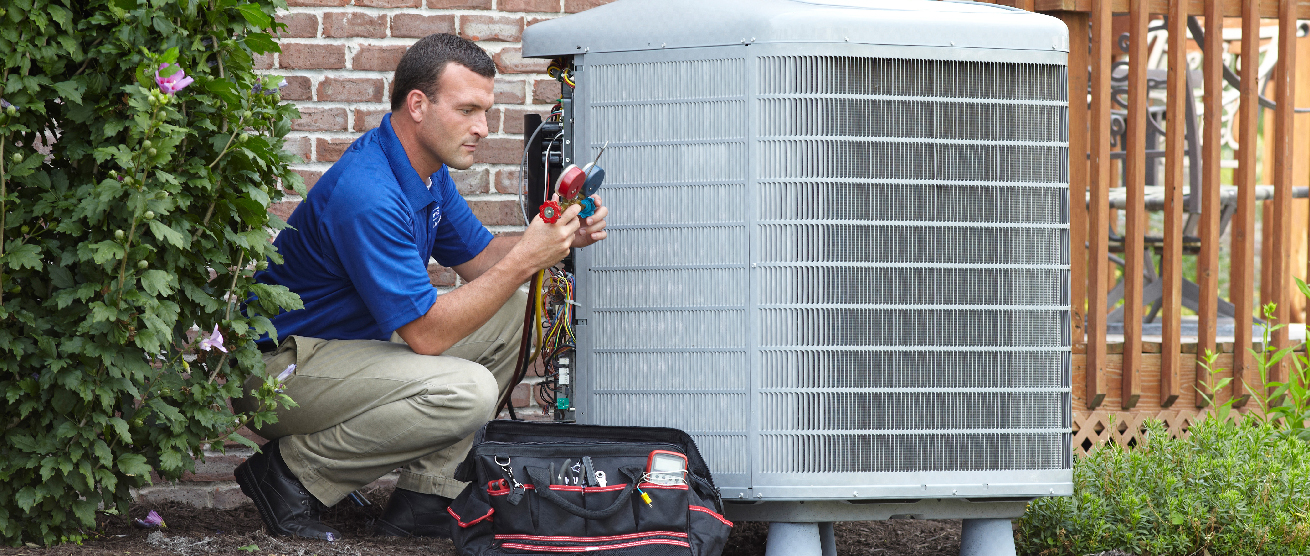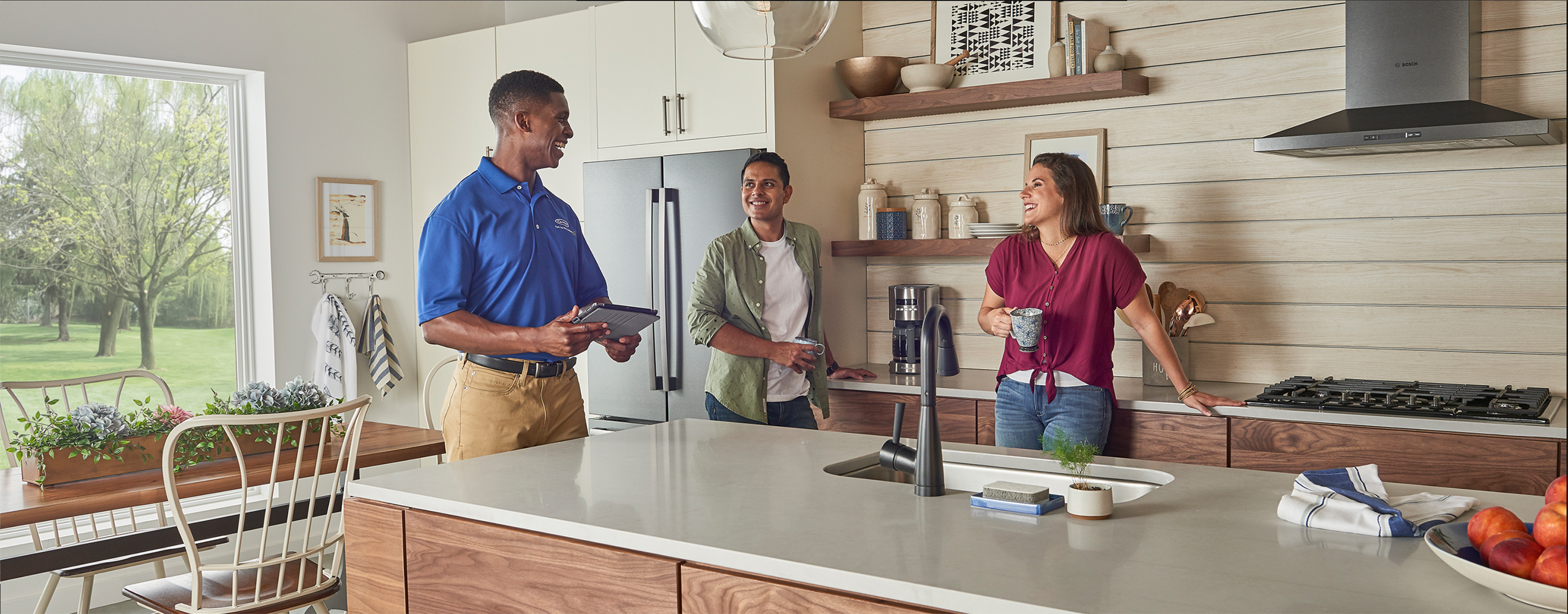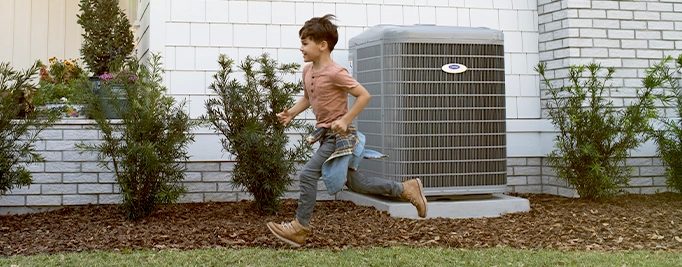Heat pumps are a versatile and energy-efficient solution for both heating and cooling your home. However, like any mechanical system, they are not immune to problems and can sometimes require repairs to maintain optimal performance. Whether you’re dealing with issues in the middle of a frigid winter or during a scorching summer, understanding common heat pump problems and knowing how to address them is crucial for keeping your home comfortable year-round. If you need HVAC repairs, contact us or read on to learn more about heat pump repairs.
COMMON CAUSES OF HEAT PUMP PROBLEMS

Heat pumps are widely regarded as a reliable and efficient source of home heating and cooling, capable of maintaining comfortable indoor temperatures year-round. However, heat pumps can stop working due to a variety of reasons, ranging from minor issues to significant system failures. Understanding the potential causes can help in troubleshooting and maintaining the efficient operation of your heat pump.
Power Supply Issues
A lack of power is one of the simplest reasons for a heat pump to stop working. This can be due to tripped circuit breakers, blown fuses, or issues with the electrical wiring. It’s important to check the power supply and ensure the heat pump receives electricity. If the problem persists, it might be necessary to consult an electrician to inspect the wiring and electrical components.
Thermostat Problems
A malfunctioning thermostat can prevent a heat pump from operating correctly. If the thermostat is not set properly or is not communicating with the heat pump, it can cause the system to stop working. Ensure that the thermostat is set to the correct mode (heating or cooling) and temperature. Sometimes, replacing the thermostat batteries or recalibrating them can resolve the issue.
Refrigerant Leaks
Heat pumps rely on refrigerant to transfer heat. If there is a leak in the refrigerant lines, the heat pump cannot effectively heat or cool the air. Low refrigerant levels can cause the system to freeze up or fail to operate. Refrigerant leaks require professional attention to locate and repair the leak and recharge the system with the correct amount of refrigerant.
Blocked Air Filters
Dirty or clogged air filters can restrict airflow, causing the heat pump to work harder and eventually stop functioning. Regularly inspecting and replacing air filters can prevent this issue. A blocked filter can cause the system to overheat or freeze, leading to operational failure.
Frozen Outdoor Unit
In cold weather, the outdoor unit of a heat pump can accumulate ice, which can block airflow and cause the system to stop working. Heat pumps have a defrost cycle to address this, but ice can build up if the defrost cycle is not functioning properly. Ensuring the defrost cycle works and manually clearing any ice can help resolve this problem.
Fan or Blower Motor Issues
The fan or blower motor circulates air through the heat pump system. If the motor fails or malfunctions, the heat pump can be prevented from operating. This can be due to mechanical failure, electrical issues, or worn-out components. A professional HVAC technician can diagnose and repair motor-related problems.
Compressor Failure
The compressor is a critical heat pump component that circulates refrigerant through the system. If the compressor fails, the heat pump cannot transfer heat effectively. Compressor issues can result from electrical, refrigerant, or wear and tear over time. Compressor replacement is a significant repair that typically requires professional service.
Thermostatic Expansion Valve (TXV) Problems
The TXV regulates the flow of refrigerant into the evaporator coil. If the TXV is malfunctioning, it can cause improper refrigerant flow, leading to issues with heating or cooling. Problems with the TXV can cause the system to freeze or fail to reach the desired temperature.
Capacitor Issues
Heat pumps use capacitors to start and run the compressor and fan motors. If a capacitor fails, the motor may not start or run inefficiently. Capacitor failure is often indicated by a clicking sound or a failure to start. Replacing a faulty capacitor can resolve this issue.
Sensor Problems
Heat pumps have various sensors that monitor temperature and pressure. If a sensor fails or provides incorrect readings, it can cause the system to stop working or operate inefficiently. Sensor issues can often be diagnosed and repaired by an HVAC professional.
TIPS TO PREVENT HEAT PUMP REPAIRS

Maintaining a heat pump is essential for ensuring its efficient operation and longevity. Following some simple tips, you can minimize the need for repairs and keep your heat pump running smoothly.
1. Regular Maintenance
Scheduling regular maintenance with a professional HVAC technician is one of the most effective ways to avoid heat pump repairs. A technician can inspect the system, clean components, check refrigerant levels, and ensure everything is operating correctly. Regular maintenance can identify potential issues before they become major problems, saving you from costly repairs in the future.
2. Changing Air Filters Regularly
Dirty or clogged air filters can restrict airflow, causing the heat pump to work harder and reducing its efficiency. Over time, this can lead to system failures and the need for repairs. Check your air filters monthly and replace them every three months or more frequently if you have pets or allergies. Clean filters ensure proper airflow and help maintain the heat pump’s performance.
3. Keeping Outdoor Unit Clear
The outdoor unit of your heat pump needs adequate airflow to function correctly. Make sure there are no obstructions such as leaves, debris, or snow around the unit. Trim back any vegetation to ensure at least two feet of clearance around the unit. Additionally, clean the coils and fins regularly to prevent dirt and debris buildup, which can hinder performance.
4. Maintaining Refrigerant Levels
Low refrigerant levels can cause your heat pump to operate inefficiently and lead to system damage. Regularly check the refrigerant levels and ensure there are no leaks. If you notice that the system is not cooling or heating effectively, it might be due to low refrigerant. A professional HVAC technician can check for leaks, repair them, and recharge the refrigerant to the proper levels.
5. Keeping the Coils Clean
Both the evaporator and condenser coils play a crucial role in the heat transfer process. Over time, these coils can become dirty, reducing their efficiency. Regularly inspect and clean the coils to ensure optimal performance. Dirty coils can cause the system to overheat or freeze, leading to potential damage and the need for repairs.
6. Insulating and Sealing Your Home
Proper insulation and sealing of your home can reduce the workload on your heat pump. Insulate your home adequately and seal any gaps or cracks around doors and windows to prevent heat loss in winter and heat gain in summer. This will help your heat pump maintain a comfortable indoor temperature without overworking, reducing the likelihood of breakdowns.
7. Avoiding Short Cycling
Short cycling occurs when the heat pump frequently turns on and off in short intervals. This can be caused by an oversized unit, incorrect thermostat settings, or airflow issues. Short cycling puts extra strain on the system, leading to increased wear and tear. Ensure your heat pump is properly sized for your home, set the thermostat correctly, and maintain proper airflow to avoid this issue.
8. Using Surge Protection
Power surges can damage the electrical components of your heat pump. Using a surge protector can help protect your system from electrical surges, especially during storms. This simple step can prevent damage to the compressor and other vital components, reducing the need for repairs.
9. Monitoring for Unusual Noises
Pay attention to any unusual noises coming from your heat pump. Strange sounds can indicate potential issues such as loose components, refrigerant leaks, or motor problems. Addressing these noises can prevent more significant problems and costly repairs.
Common heat pump repair questions

Homeowners have common questions about the operation, maintenance, and potential problems associated with heat pumps. To help you better understand and address these concerns, we’ve compiled a list of commonly asked questions about heat pump repairs.
What should I do if my heat pump isn’t heating or cooling effectively?
Check the thermostat settings, replace or clean the air filter, and ensure the outdoor unit is debris-free. If these steps don’t resolve the issue, it may be necessary to call a professional for a more thorough inspection and repair.
How can I tell if my heat pump is broken?
Signs of a malfunctioning heat pump include the system not turning on, reduced heating or cooling effectiveness, strange noises, unusual odors, or unexpectedly high energy bills. Regular maintenance and inspections can help identify and resolve issues early.
How often should I replace my heat pump’s air filter?
Air filters should be replaced about once a month, although some professionals recommend checking them every three months. Regularly replacing the filter ensures proper airflow and efficient operation.
Why does my heat pump go into defrost mode?
Heat pumps enter the defrost mode to remove frost or ice that can accumulate on the outdoor unit. The defrost cycle is normal and necessary for efficient operation. However, if it lasts longer than 15 minutes, it may indicate a problem that requires professional attention.
Can a heat pump work in cold weather?
Yes, heat pumps can work in cold weather. They extract heat from the outside air even when temperatures are below freezing. However, their efficiency decreases as the temperature drops and you may need a supplemental heating system in extremely frigid climates.
How long do heat pumps typically last?
With proper maintenance, such as cleaning or changing filters and scheduling professional inspections, heat pumps can last between 10 to 20 years. Regular maintenance can help extend their lifespan.
Why is my heat pump making strange noises?
Strange noises from a heat pump can indicate issues such as loose components, a failing blower motor, or other mechanical problems. Address noises promptly to prevent further damage.
Should I repair my heat pump myself?
Attempting DIY repairs on a heat pump is generally not recommended due to the risk of electric shock and the system’s complexity. Professional HVAC technicians have the training and tools necessary to perform safe and effective repairs.
How often does a heat pump need maintenance to potentially prevent needing repairs?
Heat pumps should undergo maintenance twice a year, ideally in the spring and fall. Regular maintenance helps ensure efficient operation and can prevent costly repairs.
SEASONAL HEAT PUMP ADVICE

Because heat pumps work year-round, unlike traditional systems that rest between seasons, they face different demands as the weather changes. Central Indiana’s shifting climate means your system may run harder in extreme heat, bitter cold, or even during the mild “in-between” months. Modern heat pumps are designed to handle these shifts efficiently, but problems can still develop if strain or wear goes unchecked. Knowing what is normal for your system and when it is time to call for repair helps you stay ahead of costly breakdowns.
Spring and Fall: Constant Temperature Swings
Transitional months might seem easy on your HVAC system, but they can be surprisingly tough on heat pumps. Quick changes from warm days to cool nights cause your unit to flip frequently between heating and cooling. This frequent switching can put stress on mechanical components and sometimes expose hidden issues such as refrigerant leaks, control board malfunctions, or sensor problems. If your heat pump has trouble maintaining consistent comfort in spring or fall, do not ignore it. Early repairs can prevent bigger problems later.
Winter: Cold Weather Backup
Even in freezing temperatures, heat pumps draw heat from the outdoor air to warm your home. When the temperature plunges into the teens or below, your system may need extra help from auxiliary or emergency heat. Occasional use of this backup is normal, but if your system relies on it too often, electricity bills can spike, and comfort can suffer. Common causes include low refrigerant, clogged coils, or a failing reversing valve. If you notice constant running, unusual noises, or frequent use of emergency heat, it is time for a professional repair to restore efficiency.
Summer: Heat and Humidity Challenges
In summer, your heat pump works like a central air conditioner. On the hottest and most humid Indiana days, longer cooling cycles are completely normal because your system is working to pull both heat and moisture from your home. But nonstop running that still fails to cool your house, or short bursts of cycling on and off, signal trouble. Worn components like compressors, fan motors, or capacitors can cause these issues. Scheduling a repair before peak summer heat keeps your home comfortable and prevents a small issue from becoming a major breakdown.
Year-Round Care Pays Off
Moisture, debris, snow, and ice can all affect your outdoor heat pump unit throughout the year. Keeping the area around the unit clear, checking for visible blockages, and scheduling seasonal tune-ups are the best ways to reduce wear and extend your system’s lifespan. If you notice your heat pump struggling in any season, whether it is freezing in winter, short-cycling in summer, or failing to keep temperatures steady in spring and fall, do not wait for the problem to get worse. Prompt repairs not only restore comfort but also protect your investment in an energy-efficient system that is built to work all year long.
HOW YOUR HEAT PUMP WORKS IN WINTER VS. SUMMER

Your heat pump works year-round by switching roles as the seasons change. The same core parts handle both jobs: a compressor, an indoor coil, an outdoor coil, a metering device, fans on both sides, sensors, and a reversing valve. In winter, the system moves heat into your home. In summer, it moves heat out. By understanding how each mode should behave, you can spot “not-normal” operations faster and decide what’s worth checking yourself—and when it’s time to call for help.
From Frost to Cozy: Your Heat Pump’s Winter Playbook
In heating mode, the heat pump pulls heat energy from the outdoor air and delivers it inside:
- The outdoor coil absorbs heat. Even in cold weather, the coil acts like an evaporator, drawing heat from the outside air.
- The compressor raises the temperature. It squeezes refrigerant to raise its heat so the indoor coil can release it indoors.
- The indoor coil delivers warmth. Acting as a condenser, the coil transfers heat to the indoor air handler, which circulates warm air through your supply vents.
- Defrost cycles protect performance. Frost may build on the outdoor coil in cold, damp weather. The system occasionally switches into defrost mode to melt ice and keep airflow strong. During this, you may hear a change in sound, see steam rising, or notice slightly cooler indoor air before normal heating resumes.
The Reversing Valve: Your Heat Pump’s U-Turn
The reversing valve is what allows your system to both heat and cool with the same hardware.
- How it works: The valve reroutes high-pressure refrigerant so the indoor and outdoor coils swap roles.
- When it switches: Your thermostat signals the control board and compressor, which activate the valve to change direction.
- Why it matters: A stuck or failing valve can cause noticeable comfort problems, such as steady airflow but the wrong air temperature. When that happens, a technician needs to test the valve, coil temperatures, and control signals.
Hot Out, Chill In: What Happens in Cooling Mode
In summer, the heat pump runs in reverse, removing heat and humidity from your home:
- The indoor coil absorbs heat and moisture. Warm indoor air passes over the cold coil, which pulls out heat and condenses moisture into the drain pan. This not only cools the air but also makes it feel less sticky.
- The compressor and metering device set the stage. The compressor keeps refrigerant moving, and the metering device ensures the indoor coil stays cold enough to cool and dehumidify.
- The outdoor coil rejects heat. Acting as the condenser, the outdoor coil releases absorbed heat into the outside air. You’ll often feel warm air blowing from the top or side of the outdoor unit during cooling.
When these processes don’t work as they should, your heat pump may run without delivering cool air. That’s when it helps to know what you can check yourself and when to call in an expert.
